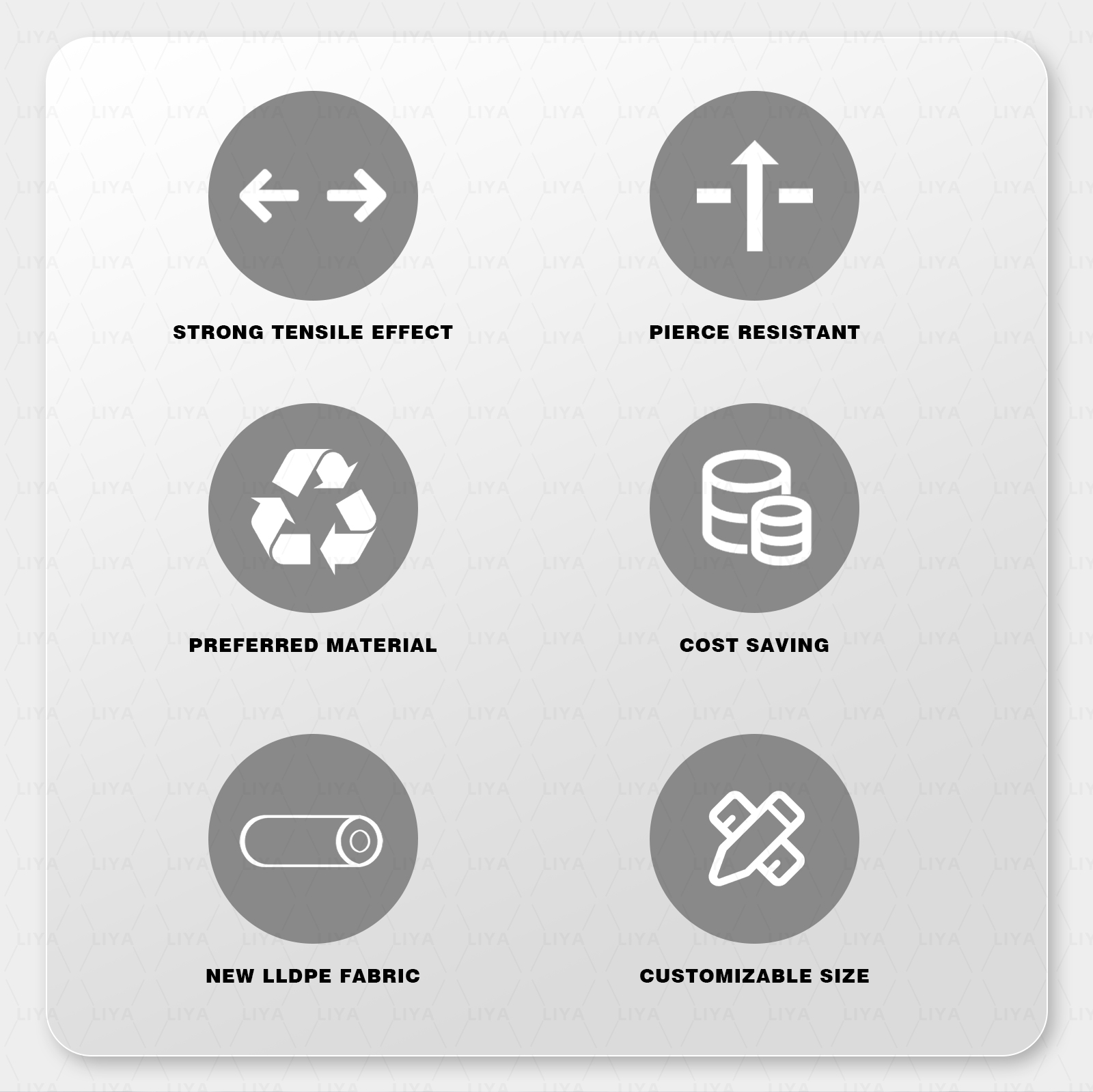100 biodegradable plastic bags
The Promise of 100% Biodegradable Plastic Bags
In the ongoing battle against plastic pollution, the emergence of 100% biodegradable plastic bags offers a glimmer of hope. As environmental concerns escalate, the demand for sustainable alternatives to traditional plastic products is more pressing than ever. Biodegradable plastic bags, which completely decompose within a specific time frame through the action of living organisms, are gaining popularity as a viable solution to reduce environmental harm. This article explores the features, benefits, and challenges associated with 100% biodegradable plastic bags.
Understanding Biodegradable Plastics
Biodegradable plastics are designed to break down more quickly than conventional plastics, which can take hundreds of years to decompose. The decomposition process is facilitated by natural microorganisms, such as bacteria and fungi, which convert the plastic into natural substances like water, carbon dioxide, and biomass. There are various types of biodegradable plastics, including those made from renewable resources like cornstarch and sugarcane, as well as petrochemical-based options that incorporate additives to promote degradation.
The term 100% biodegradable signifies that the material is fully decomposable in natural environments, leaving no toxic residue
. This critical attribute distinguishes biodegradable plastics from traditional plastics, which often result in microplastics that pollute ecosystems and enter the food chain.Environmental Benefits
The use of 100% biodegradable plastic bags presents several significant environmental advantages. Firstly, these bags contribute to reducing landfill waste. Traditional plastic bags constitute a large portion of plastic waste, often ending up in landfills where they persist for centuries. In contrast, biodegradable bags can decompose within a few months to a couple of years, significantly reducing the burden on waste management systems.
Moreover, biodegradable plastic bags can help mitigate marine pollution. Millions of tons of plastic enter the oceans every year, posing a fatal threat to marine wildlife. As biodegradable bags break down in the ocean or other natural habitats, they reduce the risk of harming aquatic life and ecosystems. Importantly, these bags are less likely to contribute to microplastic pollution, a serious environmental concern that has sparked global outrage.
Economic Perspectives
100 biodegradable plastic bags

Transitioning to biodegradable plastic bags can also stimulate economic growth in the emerging green technology sector. The production of biodegradable plastics creates jobs in agriculture, manufacturing, and distribution. As consumer awareness and environmental regulations increase, the market for these products is expected to expand, presenting opportunities for growth and innovation.
Retailers and businesses adopting biodegradable bags often enhance their brand image by demonstrating a commitment to sustainability. Green marketing can attract environmentally conscious consumers and boost sales, making biodegradable plastic bags a sound economic choice for many businesses.
Challenges and Considerations
Despite the numerous benefits, several challenges must be addressed to promote the widespread use of 100% biodegradable plastic bags. First and foremost, the production cost of biodegradable bags is often higher than that of conventional plastic bags, which can deter businesses from making the switch. However, as technology advances and production scales, these costs may decrease.
Another significant concern is proper disposal. Biodegradable plastics require specific conditions for effective decomposition, such as adequate moisture and temperature, which are often found in industrial composting facilities rather than in natural environments. Without appropriate disposal methods, these bags may not break down as intended, defeating their purpose. Public awareness and education about disposal practices are crucial for maximizing their environmental benefits.
Conclusion
In conclusion, 100% biodegradable plastic bags represent an innovative step toward alleviating the environmental challenges posed by traditional plastics. Their ability to decompose completely offers a sustainable alternative that can significantly reduce plastic pollution and promote a healthier planet. While there are challenges to overcome in terms of cost and disposal methods, the potential advantages for the environment, economy, and consumer behavior are undeniable.
Adopting biodegradable plastic bags is not only a responsible choice for businesses and consumers but also a crucial part of a broader strategy to create a more sustainable future. By prioritizing these eco-friendly solutions, we can take significant strides toward reducing our plastic footprint and protecting the environment for future generations.
-
The Best Uses for Small Trash Bags in Daily LifeNewsJul.01,2025
-
Stylish Reusable Grocery Bags TrendsNewsJul.01,2025
-
Shipping Advantages of Using Bubble Envelopes BulkNewsJul.01,2025
-
How Compostable Mailing Bags Reduce Environmental ImpactNewsJul.01,2025
-
Environmentally - Friendly Bulk Poly MailersNewsJul.01,2025
-
Eco Friendly Custom Laminated Tote BagsNewsJul.01,2025
-
Have the freedom of customizing your custom mailers any way you want! Our dedicated packaging support will help deliver you the mailing experience you need to elevate your shipping experience to the next level! Start making a strong impression on your customers and stand out from your competitors! -
LIYA uses high quality raw materials which directly purchased from large enterprises domestic and overseas such as PetroChina, Sinopec, Sabic, Equate, ExxonMobil, Dow Chemical, Total, and Borouge, ensuring the price advantage and quality of the raw materials. -
LIYA uses high quality raw materials which directly purchased from large enterprises domestic and overseas such as PetroChina, Sinopec, Sabic, Equate, ExxonMobil, Dow Chemical, Total, and Borouge, ensuring the price advantage and quality of the raw materials.





